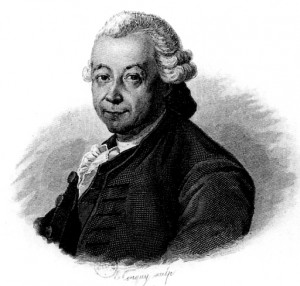
In the first of our new series of articles exploring the flavours of places, we spoke to the brilliant Selina Periampillai of Taste Mauritius. We really need to try some of those rum bananas…..!
What is the one flavour which epitomises Mauritius for you & why?
There are a few flavours that remind me of Mauritius, thyme, cinnamon, pineapple, coconut! So its difficult to pin point it down to one flavour but for me I think the most prominent I would say would be vanilla. Its sweet, wonderfully aromatic, strong and fabulous in Mauritian cuisine.
In which dish / dishes does this flavour appear?
Well vanilla is used in alot of desserts on the island, almost always combined with pineapple, bananas as a carpaccio or flambee dessert, mousse, creme brulee, the local island rum can also be spiked with vanilla pods as well as other flavours to enhance the rum giving it a spiced flavour. In some savoury dishes you will find vanilla combined with coconut chicken or with duck. On a recent trip to Mauritius I had vanilla oil drizzled on to a tartare dressed with pineapple and passionfruit.
What does the flavour look & taste like?
The vanilla pods from Mauritius are mainly sourced from neighbouring Madagascar, where bourbon vanilla is produced and is some of the best in the world, here the pods are “juicy”, succulent almost, they don’t resemble thin, dried pods you might get in the supermarket, they are thick, rich and velvety brown in colour. They taste aromatic, with mellow warm floral notes, that’s the best way I can describe it!
Does the flavour bring back any special memories?
The smell of vanilla brings back memories of baking cakes for me more than anything, from when I was young my mum would always be baking cakes on special occasions or when I was a cake baker/decorator years back and the sweet smell of most my cakes wafting out the oven would have the comforting aroma of vanilla!
Is this flavour common throughout the country?
Yes, you can find vanilla being sold in the markets in Mauritius, individually or in bundles, plus in most of the supermarkets. They are better value for money over here than in the UK which is why I always bring back lots from my trips to Mauritius. The main tea plantation on the island, Bois Cheri produces its most popular vanilla infused tea which is sold everywhere in Mauritius. There is also locally produced vanilla honey produced on the island.
Is this flavour native to Mauritius? If not, how did it become popular?
In the 1800’s the French shipped vanilla beans to Reunion and Mauritius, the tale has it that a 12 year old slave Edmund Albius from Reunion Island discovered how to pollinate flowers by hand and the pods began to grow. Vanilla plantations began in Runion Island (Ile de Bourbon) by the late 1800’s Madagascar, Reunion, Seychelles, Comoro became the Bourbon Islands or Vanilla Islands today. So Mauritius being so close to its neighbouring islands now also uses vanilla in abundance in its fusion cuisine.
Why do you think this flavour is so important to Mauritius?
Vanilla is the ultimate and most common flavouring for being used in baked goods and desserts. On the island it is available in abundance, it important to sellers, people trying to make a living and the production of goods it is used in.

Do you think this flavour reflects the people or the country in any way?
I think it definitely embodies the tropical, exotic idea of the island, vanilla is a great match with some of the exotic fruits of the island, like victoria pineapples, lychees, coconut, papaya and mango. It represents the local’s livelihood and traditions that go back generations in families from harvesting crops, vegetables, fruits and vanilla is a rich crop something sought after worldwide. Mauritius is is also part of the “Vanilla Islands”.
How is this flavour prepared & sold?
Its sold individually or in bundles in the markets and supermarkets. Or you can buy them from specialist suppliers on the island.
Is this flavour connected to any particular traditions?
It is traditionally used in cakes, desserts and now savoury dishes on the island, it is an important flavour that’s associated with Mauritius among pineapple, turmeric (saffran),chilli, cardamom and cinnamon.
Finally, do you think this flavour will remain integral to Mauritius in years to come?
Yes, there is always a demand for it in the hotels and restaurants around the island. What with how fusion and diverse Mauritian cuisine is vanilla is always going to frequent menus and its part of the Vanilla Islands, being so close to Madagascar they get the best supply and produce.
I run a Mauritian supperclub from my home, regular pop up events and Private Catering in London specialising in our fusion cuisine. I frequently use vanilla to spice my Mauritian rum, use in desserts (especially) my flambee banana or pineapple and have delved into flavouring savoury dishes with duck, chicken and prawns. We always finish our supperclub meal with Bois Cheri Vanilla Tea which is a fragrant, floral, sweet tea great to create a warming chai with cardamom. My website is www.tastemauritius.com or follow me on Twitter @tastemauritius or Facebook @yummychoo

